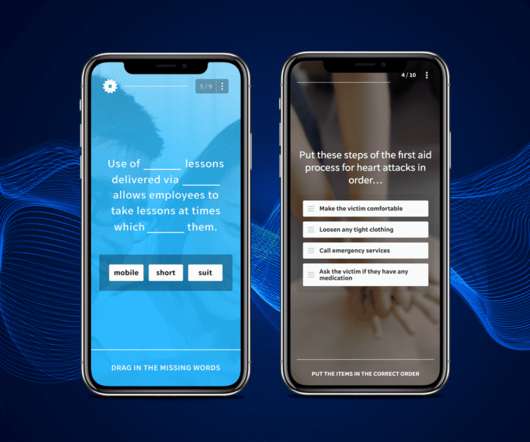Adult learning theories for instructional designers: Andragogy
Matrix
APRIL 22, 2021
In a series of articles, I will take a closer look at three modern adult learning theories that are not only relevant but highly applicable. This is important in the current context, as learning specialists deal with the challenge of building materials fast. The relevance of adult learning theories. Stay tuned!

































Let's personalize your content